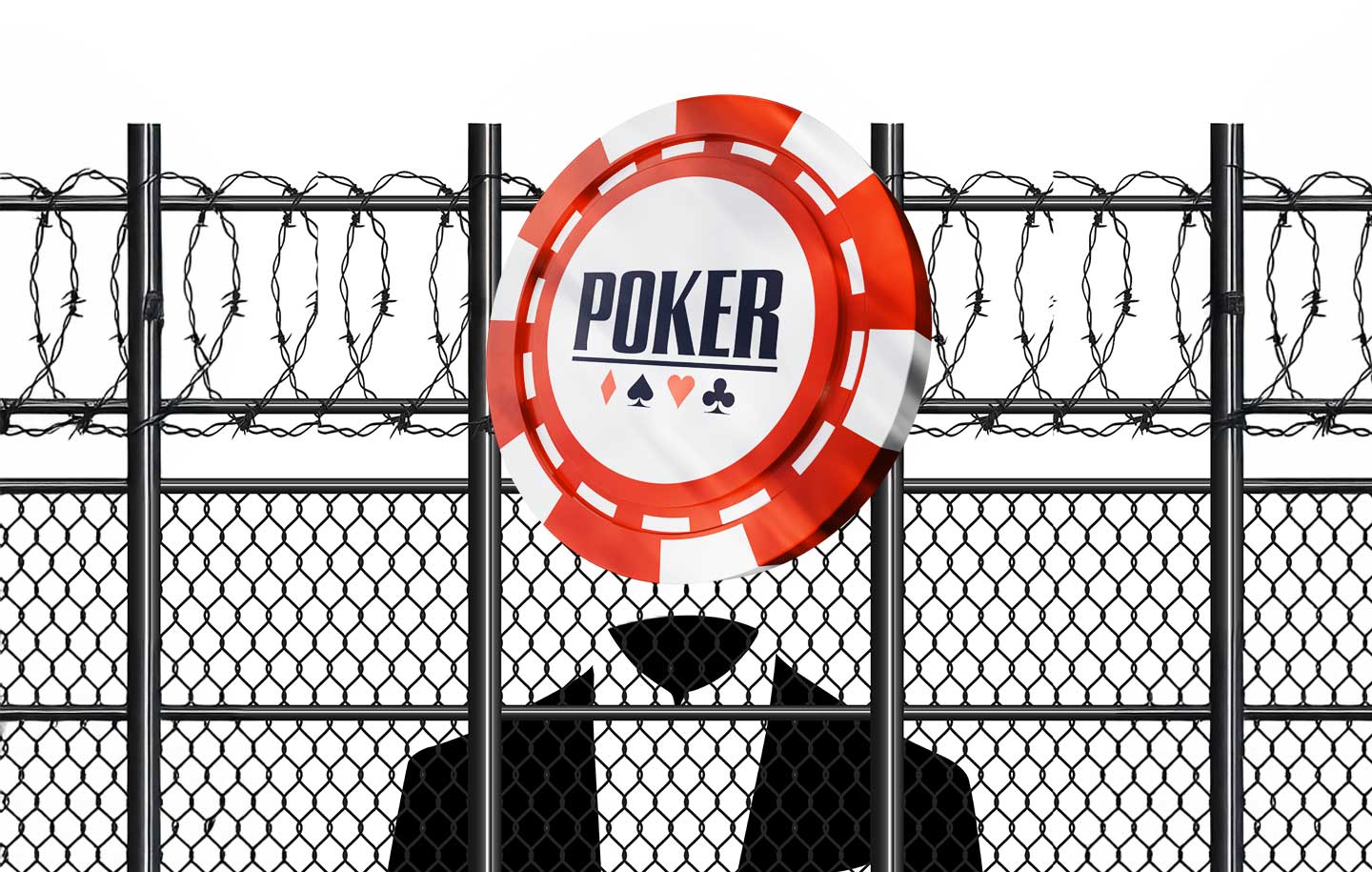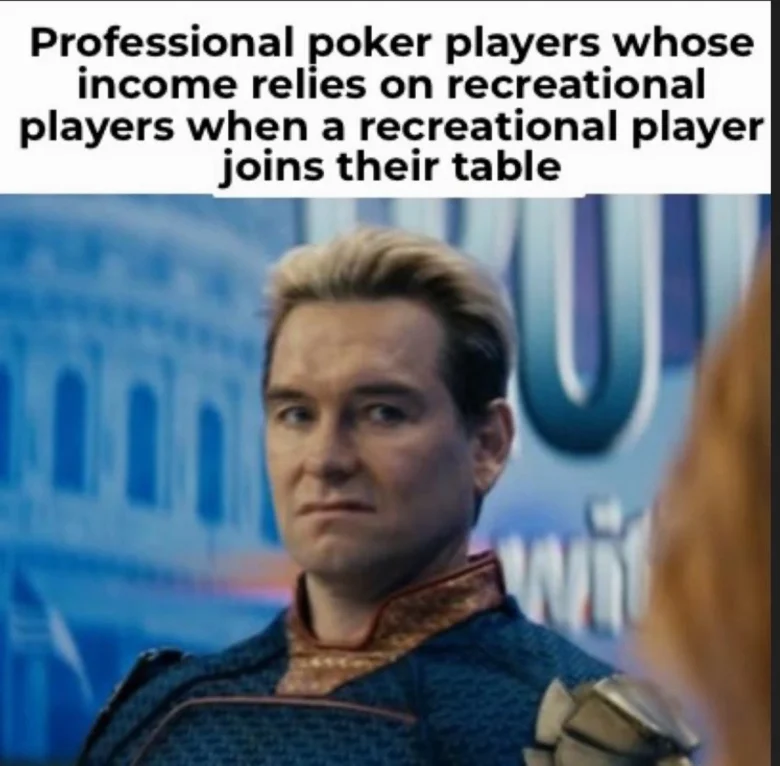Gatekeeping Poker Should Be Stopped

- Fact Checked by: PokerListings
- Last updated on: May 10, 2025 · 6 minutes to read
Poker operators spend a lot of money and (human) resources trying to attract more recreational players. But despite all the positive changes of the last twenty years, some things continue to hinder poker’s rapid growth — and one of them is gatekeeping poker.
Since this topic never gets old, PokerListings invites you to learn more about the phenomenon of gatekeeping in poker, what different players think about it, and why it’s better to get rid of it for the future of the game.
What Is Gatekeeping?
The origin of the term “gatekeeping” has no connection to poker or other games. The word was first used by social psychologist Kurt Lewin in 1943 to describe the process of filtering information by media outlets before publication.
According to the Cambridge Dictionary, the public now uses gatekeeping more broadly to mean “the activity of trying to control who gets particular resources, power, or opportunities, and who does not.” However, this definition doesn’t fully reflect the phenomenon we’re discussing in this article.
Gatekeeping in its modern interpretation is primarily used within gamer, hobbyist, or other fan communities as a two-stage process:
- Toxic, experienced, or overly involved members of the community establish criteria for who qualifies as a “real” or “true” fan or player.
- If a newcomer or existing member doesn’t meet these conditions — or questions them — they’re actively rejected from the community.
Gatekeeping varies depending on the area of interest and is often based on the internal motivation of the gatekeeper. That said, we can easily distinguish at least three common types.
The first is guarding the canon, with one of the most illustrative examples being the Tolkienist community. Some overly passionate members dictate what is considered canon — meaning faithful to the author’s vision as they interpret it — and reject everyone who disagrees, lacks knowledge, or doesn’t understand these standards.
The second is filtering by experience. This can be seen in many communities built around complex video or tabletop games — for example, the Elden Ring or broader Soulslike communities. Experienced players often mock newcomers for lacking skill, asking “stupid” questions, or not knowing the game’s lore or mechanics — even from the first few minutes of gameplay.
The third is elitist snobbery. A good example is the Warhammer tabletop community, where “true” hobbyists view the game and its financial barrier to entry as a status symbol — and push away anyone who criticizes or challenges that worldview.
Why Is Gatekeeping Poker Bad
Poker pros who choose gatekeeping as a side job display all three types of this behavior:
- They establish a canon of poker — faithfulness to GTO, exploitative play, specific strategies, or extra “rules.” When someone deviates, as recreational or new players often do, they scold the “violators” loudly, insisting this isn’t “real poker.”
- They show open disdain toward less experienced players, mocking recreational players, amateurs, and newcomers for having fun, making mistakes, or lacking technical knowledge.
- They act with inflated entitlement — as if poker is an elite pursuit too sophisticated for mere mortals — and treat other participants with condescension and arrogance.
This behavior directly contradicts the fact that having inexperienced poker players is good for every regular. After all, who else funds the ecosystem that allows regulars to make a living?
Poker community memologist Barry Carter recently posted a brilliant meme on X (formerly Twitter) that highlighted the oxymoronic nature of this problem:

His humorous take prompted many players to share their views on gatekeeping. We’ve collected a few examples from his replies, along with a handful from the r/poker Reddit thread titled “I despise when shitregs berate or are impatient with new/nervous players and it happens all the time.”
gooners345: These shitregs are so fucking retarded, it’s not the nits who are going to get everyone paid.
It happens so often and it’s really frustrating. Very few people are friendly to new players when they make mistakes, play out of turn, ask if they can raise, explain the betting line rule etc.
Several months ago, a guy sat down at our table, he was a middle-aged doctor staying at the hotel for a conference and thought he’d give poker a go. Nice guy, bought in for the maximum. He got berated at the table by 2 regs (even with me standing up for him), and after 20 minutes he stood up and said, “ah yeah maybe poker isn’t for me”… and left.
Andrew George: In my short time playing live, I’ve seen many occasions where regs are talking down to recs. I do everything I can to make recs feel welcome.
Then tonight, someone insinuated I was preying on a rec by trying to keep them involved at the table.
Does poker even want new players?
PrepareForReckoning: I see this shit all the time. I hear players complain how nitty some of the games are, but they’ll insult new players nonstop and needle them when they make bad plays and lose money.
It’s like dude, it’s their own money. Let them play how they want. If they’re making bad plays, that’s to your advantage. Help them enjoy the atmosphere and the experience.
Christian Harder: I have been around a long time and don’t see it like this. The vast majority of “pros” that are dicks to recs aren’t real long-term professional poker players. You see what Barry’s talking about in $1k tournaments WAY more than $10k+ buy-in tournaments for a reason.
Purple-Internet6133: There’s a weird social hierarchy that regs try to stay at the top of by doing severe gatekeeping like this. Even most dealers don’t like them, unless they tip.
50byHalftime: One of the reasons I hate playing live. All the regulars know each other and all the dealers. They make you feel like the odd man out in the conversations.
kodiak_kid89: Need thick skin for this game. The fact that you just want the regs to be nice to him so you can win money from a bad player isn’t exactly honorable either.
Ronnie O’Sullivan: Now you’re just writing the gospel. They hate us, but they live off us.
I Am a Poker Gatekeeper: What to Do?
As Spraggy once said on X (back when it was still Twitter):
It’s a card game, let people have fun.
New players just want to learn the basics and decide whether they want to stick around — recreationally or professionally.
Recreational players choose poker as a way to exchange some income for entertainment and maybe even win something.
Amateurs are already taking a serious shot at poker as a career.
And all of them can leave the game — and stop investing in the ecosystem — because of you.
So, if you feel the urge to tell someone how to play, point out their mistakes, or comment on their decisions — stop and ask yourself: why does this matter to me?
Your reactions say nothing about your opponents but reveal a great deal about your own personality, motivations, and weaknesses. Use that moment to reflect. Try managing your responses without harming others.
If inexperienced players trigger you, irritate you, or bring out hostility, it may be worth working with a therapist or mental coach to explore the root of those reactions.
And finally, if you do feel entitled compared to other players — fine, you’re allowed to. But try to avoid showing that superiority to them at the table.
-
- 100% up to $2000
T&Cs Apply | Play Responsibly | GambleAware
18+ | Play Responsibly | T&C Apply
-
CoinPoker4.1
- 33% Weekly
- 150% up to 2000$
T&Cs Apply | Play Responsibly | GambleAware
+18 / T & C apply / Play responsible
-
Stake.US Poker4.3
- Rakeback 5%
- $55 Stake Cash + 260K Gold Coins
T&Cs Apply | Play Responsibly | GambleAware
18+ | Play Responsibly | T&C Apply
-
- 100% up to $1000
T&Cs Apply | Play Responsibly | GambleAware
T&Cs Apply | Play Responsibly | GambleAware
-
T&Cs Apply | Play Responsibly | GambleAware
18+ | T&Cs Apply | Play Responsibly | GambleAware



